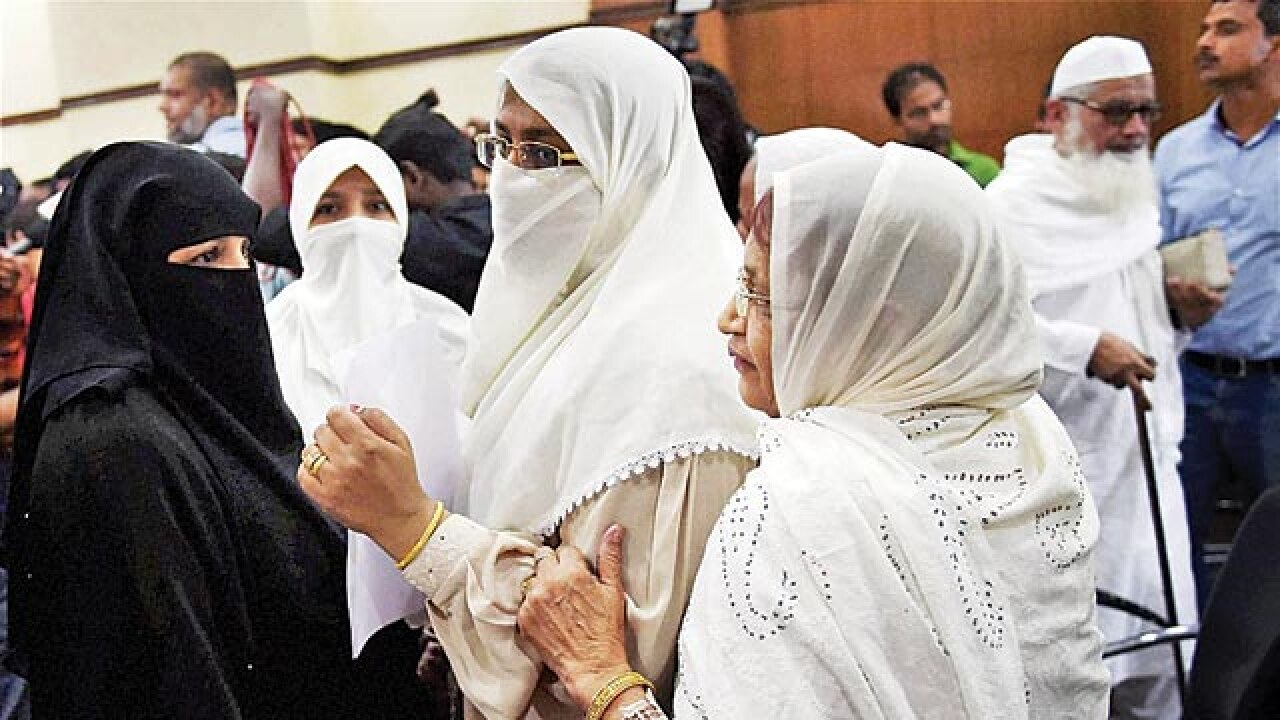
Actor Shilpa Shetty may have mistakenly pegged George Orwell’s Animal Farm as a children’s book earlier this month, but she’s not wrong in that the child-like truism of the allegory’s central credo – ‘All people are created equal, some more equal than others’—is pretty much required reading for kids of all ages everywhere. This is particularly valid in the case of triple talaq, adjudged by the Allahabad High Court to be in violation of the principles of the Constitution, on Thursday.
The freedom of Muslim women to achieve an equal opportunity to choose to be free from, or attached to, their partners becomes a pivot on which the equality of Indian society itself rests.
The National Study on Muslim Women, conducted by the Bharatiya Muslim Mahila Andolan spearheaded by Dr Noorjehan Safia Niaz and Zakia Soman, published in March 2015 found that 11 per cent of the respondents were divorced—the 2011 Census data showed only 0.49 per cent—with 64 per cent divorced within five years of being married. Sixty per cent of the divorced were pronounced so by their husbands. Only 28 per cent had sought it. It was pronounced orally in 346 cases, conveyed by letter in 40 cases, and over the phone in 18 cases, email in 3 cases. A later organisational report called ‘No More Talaq Talaq Talaq’ surveyed Muslim women and found that 91 per cent are against the practice.
A major outcome of the debate on triple talaq has been the emergence of Muslim women’s voices in the public sphere. They have been critical to shaping the flow of the discourse. In 1986, Syed Bhai, General Secretary of the Muslim Satyashodhak Sangh, that was fighting against triple talaq, explained to Madhu Kishwar’s in Manushi why: “In a secular state, the more powerful party should not be given more rights. According to law, if two men have a dispute, both are free to go to court. But if a man has a dispute with his wife, he can unilaterally discard her. He does not have to prove anything against her. The Muslim woman has no legal protection.”
In the decades that have passed since then, Muslim women have lagged behind in social indices across the board. Repeated reports, from Census 2001 to Ministry of Women and Child Development reports, have blamed ‘conservative environments’ for pushing them into early marriages for poor show on finances, education, employment, health. Muslim women also need to participate in our economic emergence.
In a truly equal society, rights must come from ownership, of gender and national identity, not imposition. In both, India is witnessing a new awakening.